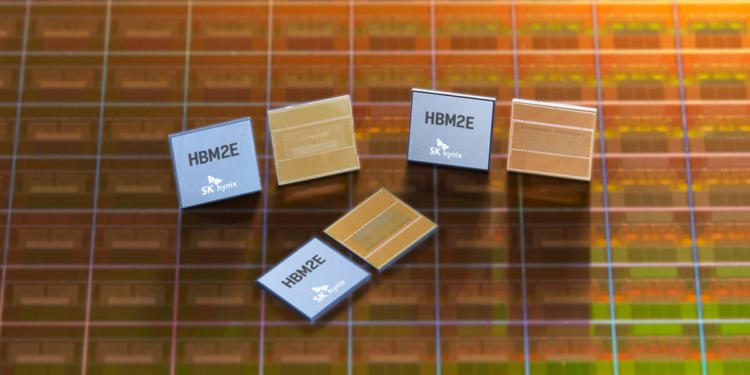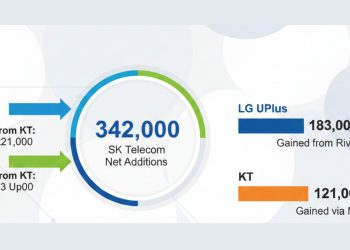SK Hynix announced on Thursday that it began the mass-production of the High Bandwidth Memory-2E (HBM2E), the industry’s fastest DRAM chip solution with the fastest data transmission speed. The company’s HBM2E could process data up to 460 gigabytes per second, raising the standard for high-performance devices using premium memory.
According to the memory chipmaker, the HBM2E enables the transmission of 124 high-definition movies in only a second, with 3.7 GB of data per video.
Compared to the previous HBM2, the latest DRAM chip has double the capacity with 16GB of density. Using the company’s proprietary “Through Silicon Via (TSV)” technology, SK Hynix connected eight 16-gigabit DRAM chips by stacking them vertically.
SK Hynix explained that through the TSV packing technology, multiple DRAM chips could be stacked on top of each other, connecting the lower and upper chips through thousands of microscopic holes. The technology produces “high-bandwidth memory chips” with 30 percent less chip size and 50 percent power consumption reduction.
At the Forefront of Technology Innovation
In 2013, SK Hynix launched the first HBM DRAM, with the HBM2E chip as the third in the HBM lineup. Along with Samsung Electronics, the company is still one of the few chipmakers that could make HBM semiconductors.
The full-scale mass-production of the HBM2E chips began after the company completed its development in August of 2019.
“SK Hynix has been at the forefront of technology innovation that contributes to human civilization with achievements, including the world’s first development of HBM products.”
– Oh Jong-hoon, SK Hynix Executive Vice President and chief marketing officer
Oh added that the full-scale mass-production of HBM2E would strengthen SK Hynix’s presence in the premium memory industry. He said that the solution would also help the company to lead the fourth industrial revolution.
SK Hynix said that the new HBM2E is a memory solution ideal for next-generation AI systems such as high-performance computing and deep learning accelerators.
Tech market researcher Omdia estimates that the global market for memory and processing chips would grow from 51.3 trillion won ($42.8 billion) in 2019 to 154.6 trillion won ($128.9 billion).







